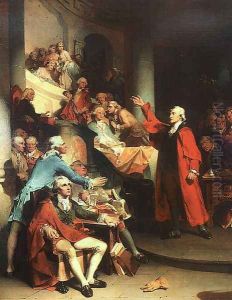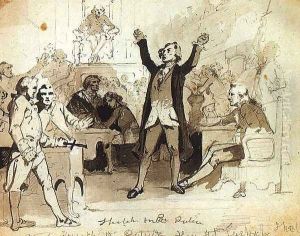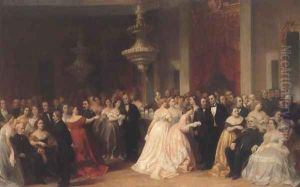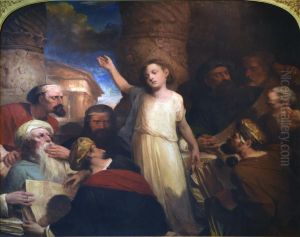Peter F. Rothermel Paintings
Peter Frederick Rothermel was an American artist known for his historical and portrait paintings, born on July 8, 1817, in Nescopeck, Pennsylvania. Rothermel's journey into the world of art began after initial pursuits in engineering and law, showcasing the diverse interests that would later be reflected in his varied subject matter. He received his artistic training at the Pennsylvania Academy of the Fine Arts in Philadelphia, where he later became a distinguished member and instructor, contributing significantly to the American art scene of the 19th century.
Rothermel's career was marked by his dedication to capturing pivotal moments in history and the human figures who shaped them. Perhaps his most famous work, 'The Battle of Gettysburg: Pickett's Charge,' completed in 1870, is a monumental canvas that depicts the intense and critical moments of the Civil War's most famous battle. This painting, among others, solidified Rothermel's reputation as a master of historical narrative, skillfully blending drama and accuracy to bring the past to life.
Aside from his historical pieces, Rothermel was also a respected portraitist, capturing the likenesses of many prominent figures of his time. His ability to portray his subjects with both realism and empathy added a personal dimension to his oeuvre, making his portraits sought after by the elite of American society.
Throughout his career, Rothermel was honored with numerous awards and accolades, his works were exhibited widely, including at the Pennsylvania Academy of the Fine Arts and the National Academy of Design in New York. Despite his success, he remained dedicated to his craft, continually evolving his style and technique until his death on August 15, 1895, in Linfield, Pennsylvania. Peter F. Rothermel's legacy lives on through his contributions to American art, particularly in his historical paintings, which continue to be celebrated for their insight into the American spirit and character.



